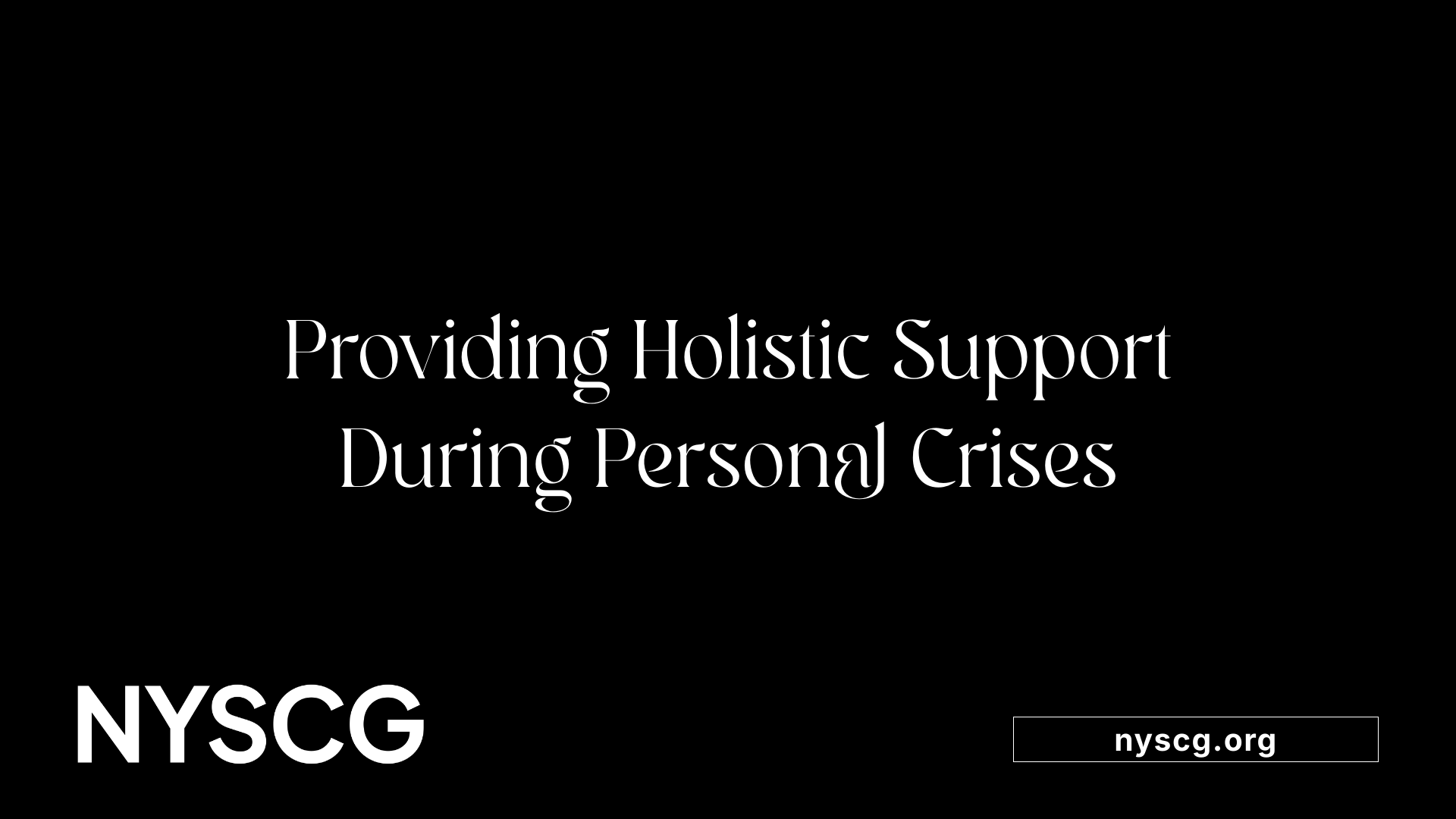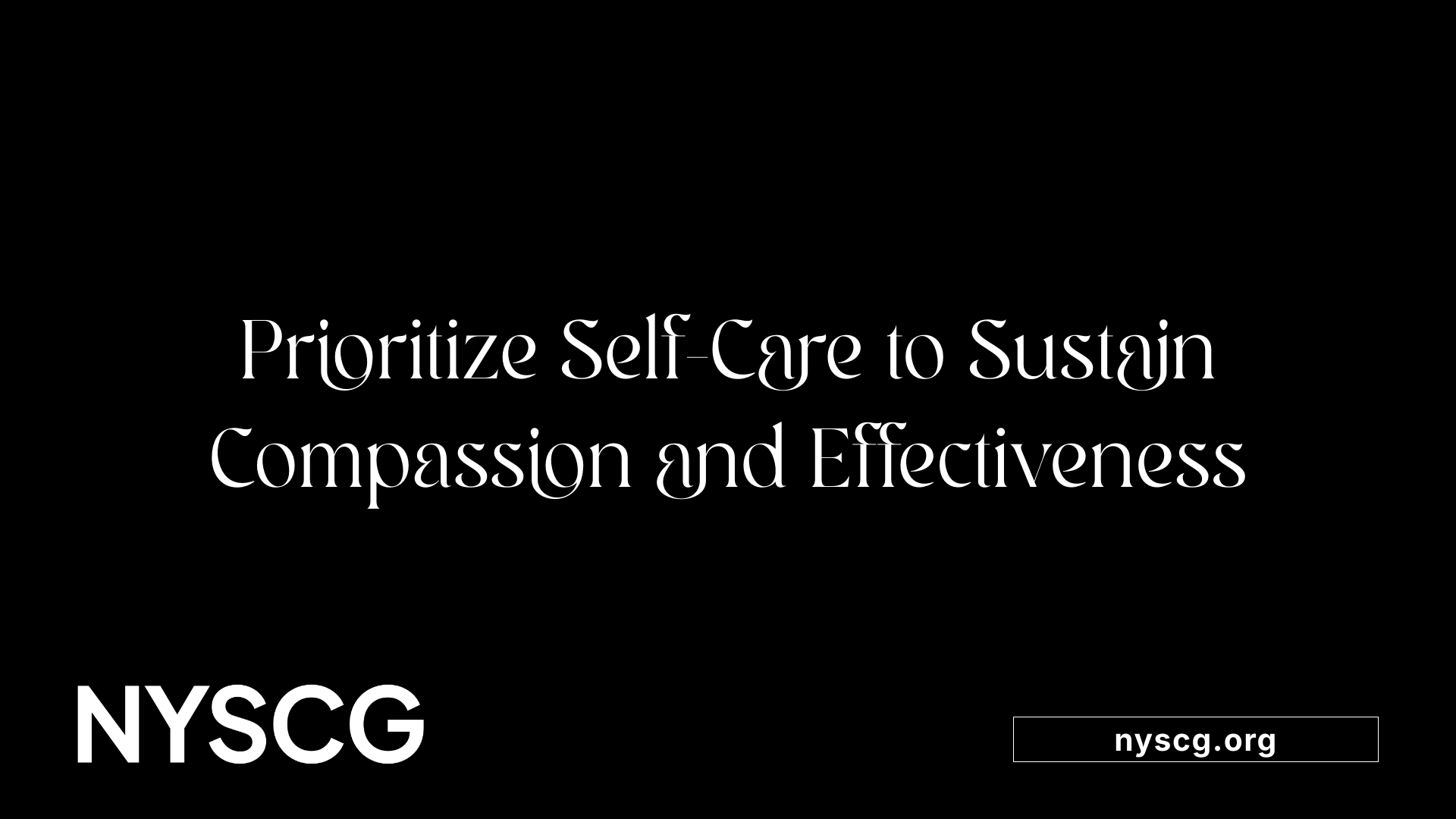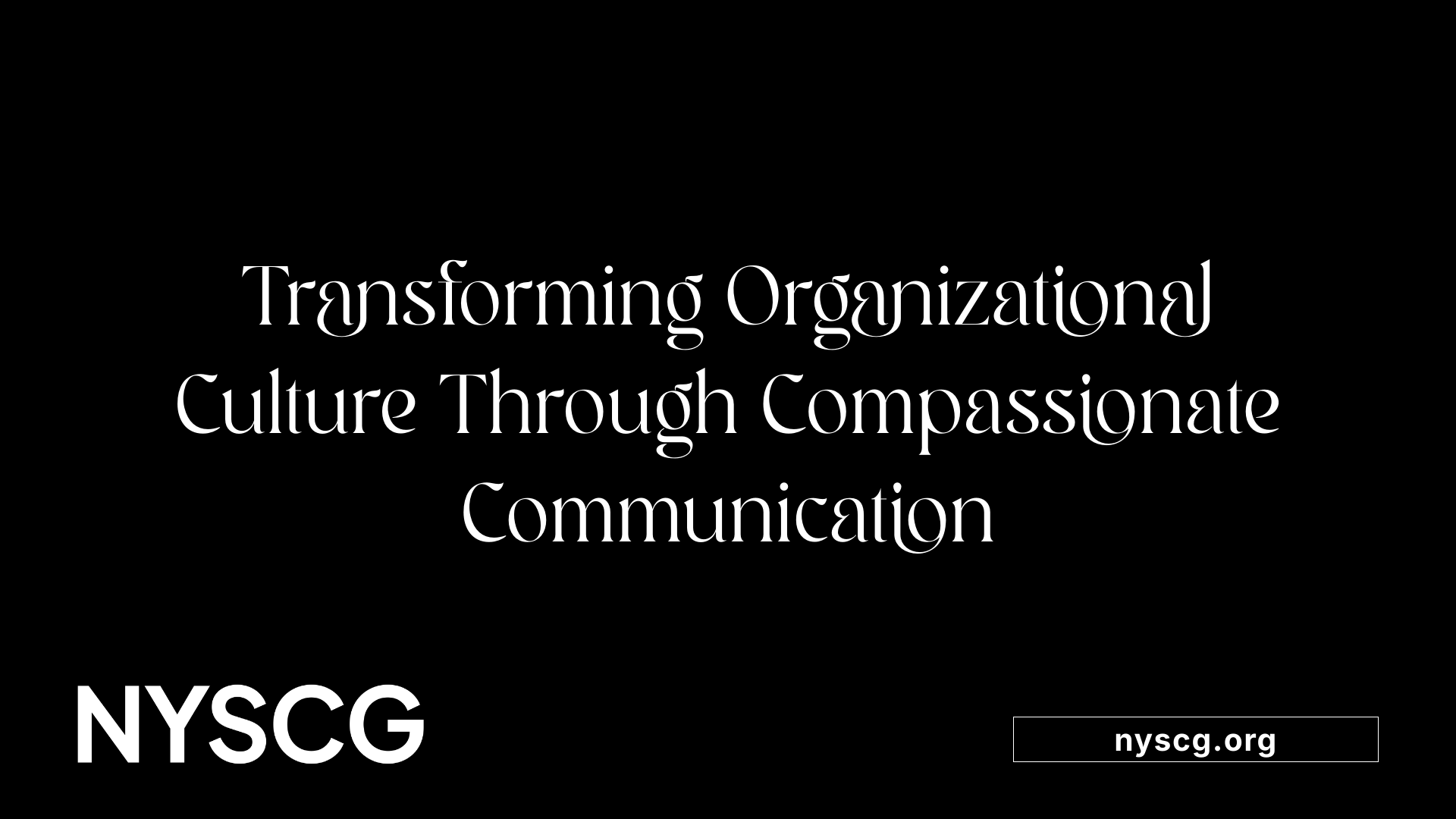Navigating Tough Conversations: Chaplaincy Skills That Make a Difference


In environments where emotional, spiritual, and mental well-being intersect, such as healthcare settings and spiritual communities, the ability to handle tough conversations is essential. Chaplains, equipped with specialized skills and training, play a pivotal role in managing these difficult dialogues. This article explores how effective chaplaincy skills influence the quality of these interactions, the strategies that make them successful, and how training elevates their capacity to serve during times of crisis and moral complexity.
In healthcare and spiritual environments, chaplains serve as vital support figures, offering emotional and spiritual guidance to patients, families, and healthcare teams. Their role extends beyond spiritual counseling to include facilitating communication about complex issues such as illness, prognosis, and end-of-life decisions. Trained in crisis intervention, trauma-informed care, and cultural competency, chaplains create safe spaces where individuals feel heard, respected, and understood.
Their presence helps bridge the gap between medical facts and personal meaning, ensuring that care aligns with patients' values and beliefs. In spiritual settings, chaplains support congregation members with personal crises, grief, and spiritual dilemmas, reinforcing a community of compassion and understanding.
Chaplaincy skills are instrumental in enabling effective management of tough discussions. These skills include active listening, empathy, and the use of spiritual assessment tools such as FICA (Faith, Importance, Community, Address). Chaplains are trained to handle conversations about mortality, suffering, and existential questions with sensitivity.
They foster trust and openness by creating a non-judgmental environment, which encourages patients and families to express fears and hopes honestly. Their ability to mediate and de-escalate conflicts helps reconcile differing perspectives, especially when confronting end-of-life choices or serious diagnoses.
Moreover, chaplains collaborate with healthcare providers, ensuring that communication about goals of care is clear, compassionate, and aligned with patient preferences. This interdisciplinary approach supports holistic patient-centered care.
The presence of skilled chaplains positively influences patient and family experiences by reducing distress and enhancing feelings of control and dignity. Their support often results in higher satisfaction with care, better coping mechanisms, and improved overall well-being.
For clinicians, chaplains offer emotional and spiritual support, helping them manage the stress of difficult cases and moral distress. This support fosters a resilient work environment and promotes team cohesion.
Chaplains also improve team dynamics by facilitating respectful communication and conflict resolution, which are crucial during high-stakes situations. Their role as mediators and confidants helps build a culture of compassion and mutual respect.
| Aspect | Role of Chaplains | Impact | Examples |
|---|---|---|---|
| Communication | Facilitate difficult conversations | Reduce misunderstandings | Goals of care, end-of-life planning |
| Emotional support | Provide comfort | Decrease anxiety | During crises or after sensitive disclosures |
| Team collaboration | Mediate conflicts | Enhance teamwork | During interdisciplinary discussions |
| Cultural competence | Respect diverse beliefs | Improve inclusivity | Working with diverse patient populations |
By leveraging their communication and emotional support skills, chaplains play a crucial role in creating a healthcare environment that is compassionate, responsive, and respectful of individual needs.

Chaplains are trained to be present during some of the most difficult moments in a person's life. Whether it's dealing with grief, illness, or family emergencies, they provide emotional and spiritual support tailored to individual needs. Their role includes offering a safe space for people to share their feelings without judgment, helping them find a sense of calm and clarity amid chaos.
Chaplains often visit employees or congregation members during hospital stays, funerals, or moments of personal hardship. They assist in managing responsibilities and emotions, helping individuals cope and maintain stability. By fostering a supportive environment, chaplains help mitigate stress, promote healing, and support overall mental health.
Core to the work of chaplains are skills like active listening and empathy. These allow them to truly understand what a person is experiencing, which is essential when navigating serious challenges. Active listening involves fully concentrating on the speaker, understanding their message, and responding thoughtfully.
Empathy enables chaplains to connect emotionally, validating the person's feelings and fostering trust. This genuine engagement helps individuals feel heard and supported, which can significantly reduce feelings of isolation or distress.
Chaplains do not just provide emotional and spiritual support—they also serve as connectors to other resources. Whether it's mental health services, community support groups, or workplace wellness programs, chaplains guide individuals toward comprehensive care options.
Their holistic approach considers mental, emotional, spiritual, and sometimes practical needs. For example, during crises, they might facilitate referrals to counselors or support organizations to ensure ongoing assistance. This integrated support helps individuals navigate their challenges more effectively, promoting resilience and well-being.
This comprehensive support approach is backed by research showing that chaplains' skills in crisis intervention, active listening, and resource connection significantly improve individuals' capacity to handle personal crises. Their presence fosters a culture of compassion, making workplaces and communities safer, more inclusive environments.
| Aspect | Skills Involved | Impact | Additional Notes |
|---|---|---|---|
| Emotional Support | Active listening, empathy | Reduces stress, fosters healing | Critical during grief, illness, crises |
| Conflict Resolution | Mediation, de-escalation | Builds trust and understanding | Useful in workplace conflicts |
| Resource Connection | Referrals, holistic care | Ensures comprehensive aid | Promotes long-term well-being |
| Crisis Management | Trauma-informed care, ethical decision-making | Maintains safety and dignity | Essential in emergencies and trauma |
Understanding the multifaceted role of chaplains highlights why their skills are vital in supporting individuals through life's toughest moments, helping them find hope, purpose, and healing amid adversity.

Handling difficult conversations is a fundamental aspect of effective chaplaincy. These discussions often involve sensitive topics such as illness, grief, or conflicts, requiring specialized interpersonal skills.
One of the most important skills is emotional intelligence. Chaplains need to recognize and regulate their emotions while supporting others through their feelings. This ability helps in creating a calm and empathetic environment, fostering trust.
Equally vital is empathy. This involves understanding and sharing the feelings of others, allowing chaplains to connect deeply with individuals' spiritual and emotional experiences. Active listening also plays a crucial role; it ensures that the person’s words and underlying emotions are heard and understood.
Building trust is essential for open dialogue. Confidentiality must be maintained consistently to create a safe space for sharing personal and sensitive information. Demonstrating humility and confidence, especially when addressing diverse backgrounds and beliefs, helps establish credibility and reassurance.
Cultural competence and humility are necessary to communicate effectively across different cultural and spiritual contexts. Chaplains must respect individual belief systems, explain complex or sensitive issues clearly, and uphold ethical standards.
Balancing honesty with compassion allows chaplains to provide truthful guidance without causing harm. They must communicate challenging truths with kindness, supporting hope and healing.
These skills combined enable chaplains to navigate complex conversations mindfully. The overall goal is to foster understanding, provide comfort, and help individuals find meaning and resilience in difficult circumstances.
| Skill | Focus Area | Benefit |
|---|---|---|
| Emotional Intelligence | Recognize and manage emotions | Creates calm, supportive environment |
| Empathy | Understand others' perspectives | Builds deep connection and trust |
| Active Listening | Focused engagement with speakers | Ensures accurate understanding and validation |
| Trust & Confidentiality | Maintain privacy and respect | Encourages openness and honesty |
| Cultural Competency | Respect diverse backgrounds | Enhances communication and inclusivity |
In summary, mastering these interpersonal skills enables chaplains to manage challenging discussions with sensitivity, fostering hope, understanding, and emotional resilience.
 Handling challenging conversations in spiritual and chaplaincy settings requires a combination of communication skills and emotional awareness.
Handling challenging conversations in spiritual and chaplaincy settings requires a combination of communication skills and emotional awareness.
One fundamental approach is active listening. Giving full attention to the speaker and responding with empathetic responses helps build trust and demonstrates genuine care. Maintaining emotional neutrality is also important; it allows the conversation to stay respectful and calm, even when dealing with sensitive topics.
Balancing honesty with compassion is vital. While transparency is necessary, it should always be delivered gently, respecting the individual's emotional state and spiritual beliefs. Tailoring discussions to reflect and honor these beliefs fosters understanding and acceptance.
Respecting personal and spiritual backgrounds is essential. Each person's perspective on life, death, and meaning may differ based on their faith or secular views. Recognizing and honoring these differences creates a safe environment for open dialogue.
Effective preparation can greatly improve the effectiveness of difficult conversations. Setting clear objectives, managing one's emotions, and choosing an appropriate time and place for discussions helps create a conducive atmosphere.
Spiritual reflection and prayer are often used to seek wisdom and guidance before engaging in sensitive topics. These practices can foster patience, empathy, and clarity.
Building trust through transparent and consistent communication is fundamental. Avoiding superficial responses and engaging sincerely demonstrate respect and foster openness.
During conversations about sensitive issues such as death, illness, or grief, incorporating spiritual elements like biblical principles, prayer, and expressions of hope rooted in faith can offer comfort and resilience.
Research into communication in spiritual care underscores the importance of compassionate engagement, patience, and understanding. These strategies facilitate meaningful dialogue, even about the most difficult personal and existential subjects.
| Strategy | Purpose | Additional Tips |
|---|---|---|
| Active Listening | Make the speaker feel heard and understood | Use body language, affirmations, and clarifying questions |
| Empathetic Responses | Show compassion and validate feelings | Mirror emotions and respond with kindness |
| Emotional Neutrality | Remain calm and focused | Manage personal reactions; breathe deeply |
| Balancing Honesty & Compassion | Be truthful while maintaining kindness | Use gentle language and avoid confrontation |
| Respect for Beliefs | Honor individual worldviews | Acknowledge differing perspectives and offer support |
| Spiritual Reflection & Prayer | Seek divine wisdom and calm | Use in preparation or during the conversation for guidance |
Understanding effective communication strategies ensures that chaplains and spiritual caregivers can navigate delicate discussions with empathy, respect, and clarity, thus providing meaningful support during life's most challenging moments.

To equip chaplains with the skills needed for managing challenging or sensitive discussions, specialized training programs are essential. These programs often include simulation exercises, role-playing scenarios, and interactive workshops. These practical tools help chaplains practice and refine their communication techniques in a safe environment.
In addition to traditional dialogue practice, incorporating assistive communication methods enhances their ability to connect with patients or employees who might have difficulty speaking or understanding speech. Using communication boards or tagged yes/no questions enables better engagement, especially for nonvocal individuals or those in critical health situations.
Cultural sensitivity training is also crucial, enabling chaplains to respect diverse backgrounds and beliefs while addressing complex personal or spiritual issues. Skills in advance care planning and bereavement support further prepare chaplains to guide conversations around serious illness or life-ending decisions.
Effective models like VitalTalk and TeamTalk serve as the foundation for many communication skills curricula. These frameworks promote clear, compassionate, and goal-oriented discussions. Training based on these principles has demonstrated that chaplains gain increased confidence and practical ability to facilitate difficult conversations.
Fostering this training approach involves not only initial instruction but also ongoing supervised practice, which allows chaplains to develop mastery over time. Emphasizing cultural competence, emotional regulation, and ethical considerations ensures they can handle complex dynamics with empathy and professionalism.
In summary, a comprehensive training approach combining simulation, assistive communication, training models like VitalTalk and TeamTalk, and continuous practice strengthens chaplains' capacity to lead meaningful, respectful, and effective difficult conversations.

Chaplains regularly face emotionally charged situations, such as counseling during crises, grief, or trauma. These demanding circumstances can take a toll on their mental and emotional well-being. To sustain their ability to support others effectively, chaplains must prioritize their own self-care and resilience.
Supporting the mental health of chaplains helps prevent burnout, compassion fatigue, and emotional exhaustion. When chaplains maintain their well-being, they can offer consistent, empathetic support to those in need, fostering trust and healing within the communities they serve.
Chaplains can use various strategies to manage stress and maintain emotional balance. Mindfulness practices, such as meditation or deep breathing exercises, help them stay present during intense interactions. Reflective practices, like journaling or supervision, allow for processing emotional responses.
Peer support groups provide a space for sharing experiences and gaining encouragement from colleagues, reducing feelings of isolation. Setting healthy boundaries ensures chaplains do not become overwhelmed or overly involved in clients' issues.
Regular self-care routines—such as exercise, hobbies, adequate rest, and spiritual practices—are vital. These activities replenish emotional reserves and foster resilience.
Developing self-awareness enables chaplains to recognize early signs of emotional fatigue or stress. By understanding their own limits and reactions, they can seek timely support or adjust their approach.
Maintaining ongoing training in emotional regulation, trauma-informed care, and ethical boundaries also contributes to their professional growth. When chaplains are attentive to their well-being, they maintain higher levels of empathy, patience, and clarity, leading to more effective support for those they serve.
Ultimately, investing in self-care and resilience not only benefits the chaplain personally but also ensures they remain capable of fulfilling their vital role within organizations and communities.

Chaplains bring a unique set of skills that significantly influence the organizational environment, especially when it comes to having difficult discussions. Their expertise in active listening, cultural competency, and conflict resolution creates a foundation for open and honest communication.
Workplaces that incorporate chaplaincy services often experience a positive shift in employee engagement and morale. By serving as neutral mediators, chaplains help de-escalate conflicts, ensuring that sensitive issues are addressed with empathy and understanding.
The presence of skilled chaplains fosters a culture rooted in mutual respect and compassion. Employees are more likely to feel safe sharing concerns, knowing that there is confidential, non-judgmental support available.
This supportive environment increases organizational resilience by promoting psychological safety and enabling teams to navigate crises or interpersonal challenges more effectively. For example, in healthcare settings, chaplains facilitate difficult goals-of-care conversations, ensuring that patient and family needs are honored while maintaining staff confidence.
Research indicates that organizations investing in chaplaincy enjoy lower staff turnover rates and stronger team cohesion. Employees feel valued and supported, which encourages loyalty and reduces burnout.
Furthermore, this culture of empathy and respect enhances collaboration, making it easier to implement organizational changes or address workplace issues proactively. Ultimately, chaplaincy skills contribute to a healthier, more resilient workplace where difficulties are managed compassionately and constructively.

Becoming a professional chaplain generally requires a solid foundation in education related to theology, counseling, or social work. Many chaplains pursue degrees or certifications in these fields, emphasizing emotional intelligence, ethical decision-making, and cultural competency. Additionally, specialized training in workplace or hospital ministry often complements academic backgrounds. It’s common for aspiring chaplains to undergo supervised practical experience, which helps them develop the necessary skills to support individuals in crisis.
The International Fellowship of Chaplains (I.F.O.C.) is a renowned organization dedicated to credentialing Christian chaplains worldwide. With over 25 years of experience, I.F.O.C. offers structured training programs that prepare chaplains for diverse settings including hospitals, workplaces, and community organizations. They set high standards for education, practical experience, and ethical practice, ensuring that credentialed chaplains are fully equipped to offer compassionate support.
Credible chaplaincy training emphasizes core competencies such as active listening, crisis intervention, trauma-informed care, and spiritual guidance. Programs need to include case studies, simulated scenarios, and real-world experience to foster practical skills. Certification bodies like I.F.O.C. require ongoing education and adherence to ethical guidelines to maintain certification.
Handling serious or complex discussions is a vital part of chaplaincy. Effective training combines role-play, simulation exercises, and workshops on communication, conflict resolution, and emotional regulation. Programs based on VitalTalk and TeamTalk principles have proven successful in enhancing confidence and skills.
| Training Focus | Methods and Techniques | Benefits |
|---|---|---|
| Communication Skills | Role-play, simulated patients, workshops | Increased confidence, clarity in dialogue |
| Emotional Regulation | Stress management, mindfulness | Better control during crisis conversations |
| Cultural Competency | Case studies, diverse scenarios | Respectful, inclusive interactions |
| Conflict Resolution | Mediation exercises, scenario analysis | Facilitates understanding and empathy |
Beyond technical skills, ongoing supervised practice and familiarity with culturally sensitive approaches ensure chaplains can navigate complex discussions effectively. They learn to use assistive techniques such as communication boards and yes/no questions, especially when working with non-vocal patients or in critical care environments.
In summary, comprehensive training involving simulation, role-play, and continuous education equips chaplains to manage difficult conversations compassionately and competently. This prepares them to support individuals facing serious illnesses, emotional distress, or ethical dilemmas—ultimately fostering trust and clarity during challenging times.
Mastering difficult conversations is a cornerstone of effective chaplaincy, requiring a unique blend of technical communication skills, emotional intelligence, and spiritual sensitivity. Through specialized training, ongoing practice, and resilience-building, chaplains are empowered to support individuals through their most challenging moments with compassion and clarity. As organizations recognize the vital impact of these skills, they foster environments of trust and empathy, ultimately enhancing the well-being of all involved. Navigating tough conversations with grace not only heals individual wounds but also strengthens the fabric of communities and workplace cultures, making the difference that compassionate, skilled chaplains are uniquely capable of providing.
All you need is the will to make the world a better place.
New York State chaplain group inc. is a tax deductible organization with a federal tax Id number 92-383-4921